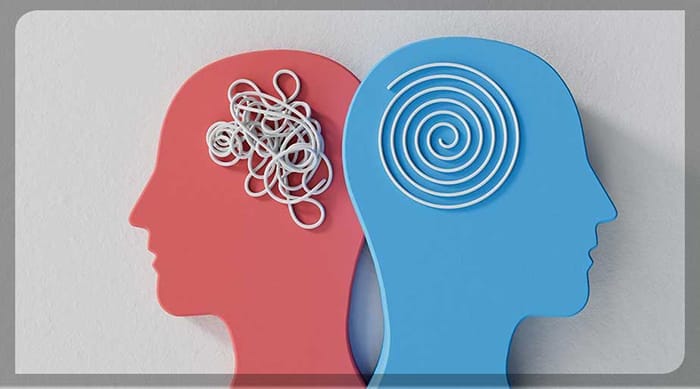
Blog
Educational psychology

Educational psychology can be defined as a field that studies the processes of human teaching and learning in educational settings. It is a branch of psychology that focuses on teaching methods, learning strategies, and their effects on students, along with processes such as learning and instruction.
According to John F. Travers (1982), educational psychology involves the systematic study of learners, learning processes, and teaching. These three elements—students, learning, and teaching—are interconnected and interact with one another. Therefore, educational psychology plays an important role in understanding the educational process and addressing the challenges teachers may face in the classroom.
In the view of Wittrock (1992), educational psychology is not limited to applying existing psychological knowledge to theory and practice in education, but also contributes to the development of new knowledge and innovative approaches. In short, educational psychology examines learning processes, human development and motivation, social learning, and personality aspects such as intelligence and creativity, helping to gain a deeper understanding of teaching.
فهرست عناوین
ToggleThe Impact of Educational Psychology in Education
Educational psychology plays a fundamental and crucial role in the field of education. It provides teachers, educators, and students with tools and concepts that foster better communication and understanding in the teaching-learning process.
One of the most important aspects of this approach is the use of diverse and effective strategies. Educational psychology equips teachers with tools and techniques that make learning easier and more engaging for students. Moreover, it helps teachers deal more effectively with the unique challenges some students may face. These concepts aim to increase students’ self-awareness and their ability to cope with difficulties.
In recent years, schools that have applied psychological knowledge have shown notable improvements in performance and educational outcomes, achieving significant success.
Overall, educational psychology plays a vital role in enhancing the educational process and is highly valuable in achieving educational goals and fostering the full development of students.
Suggested article: Family Psychology

History of Educational Psychology
As a research area in the field of educational sciences, educational psychology has a rich and fascinating history and has made a significant impact on pedagogy. This field draws inspiration from approaches and concepts developed over centuries in both psychology and education.
The study and research of educational psychology date back to the early 19th century, when interest in understanding behavior and the impact of education on personality and behavior began to grow. Over time, with the evolution of theories, methods, and concepts, educational psychology emerged as a critical domain for educational improvement and reform. Ideas such as the influence of environment and culture on human behavior also gained attention.
Foundations from both psychological and educational thought have shaped the development of educational psychology. From the philosophies of ancient Greek thinkers to modern psychological theories, all have contributed to educational practices. As research in educational psychology progressed, various schools of thought emerged in the field.
These include contributions from psychologists such as John Dewey, Alfred Binet, George Klein, and John Watson, introducing concepts and theories from behaviorism, child psychology, and personality development.
Today, educational psychology is recognized as an independent and essential domain in education. With advances in technology and the growing availability of educational opportunities, the need for research and application of educational psychology has become increasingly significant. It is now regarded as one of the foundations of individual and societal development.
Suggested article: Health Psychology
Approaches to Understanding Behavior and Individual Development
In the field of educational psychology, professionals use various approaches to examine and interpret behavior and individual development. These approaches include:
Behavioral Approach:This approach assumes that behaviors are shaped through previous experiences and can be changed through reinforcement and punishment. The behavioral approach believes that individuals can learn new behaviors and acquire new skills while reducing undesirable behaviors through proper conditioning.
Cognitive Approach: This approach emphasizes the role of cognitive processes such as attention, memory, thinking, and language in shaping behavior. It focuses on how individuals interpret and understand their environment and experiences.
Developmental Approach: This approach highlights the process of growth and personal development. It explores factors such as identity, self-efficacy, and social skills that play key roles in the individual’s developmental process.
Experiential Approach: This approach centers on the idea that people learn through experience and interaction with their environment. It emphasizes the relationship between the individual and the social environment, and the learning processes that occur through these interactions.
Constructivist Approach: This approach holds that the process of development and personal growth is shaped through social interactions and the individual’s communication with their social environment. It focuses on the idea that personal development is actively constructed by the individual through these social exchanges.
Suggested article: Emotion-Based Approach

Key Figures in Educational Psychology
In the realm of educational psychology, several prominent individuals are recognized as pioneers and influential thinkers. These figures introduced critical theories and models that have greatly impacted educational and psychological practices. Here are a few of them:
Albert Bandura
Albert Bandura is one of the pioneers in educational psychology, best known for his Social Learning Theory. He emphasized the role of the social environment in learning and behavior, introducing core concepts such as modeling and reinforcement.
Howard Gardner
Howard Gardner is famous for his Theory of Multiple Intelligences, which challenged the traditional view of intelligence. He argued that intelligence is not a single general ability but a set of multiple intelligences, each representing different talents and capabilities.
Jerome Bruner:
Jerome Bruner was a key figure in cognitive psychology. He developed significant theories such as Cognitive Learning Theory and the concept of scaffolding, contributing to a deeper understanding of how people learn.
Jean Piaget
Jean Piaget is well known for his Cognitive Development Theory, one of the most influential theories in educational psychology. He focused on explaining how thinking and understanding evolve in individuals over time.
John Dewey
John Dewey is recognized as the founder of functional psychology in the field of education. By emphasizing the importance of mental and psychological processes in learning and behavior, he contributed to the development of useful models and frameworks in this area.
These figures are only examples of pioneers and renowned experts in educational psychology who, through their influence, have made significant contributions to the advancement of this field.
In general, the role of educational psychologists includes studying and analyzing behaviors, developing social and cognitive skills, providing appropriate solutions for psychological problems and healthy individual development, offering suitable educational methods, and enhancing society’s awareness and understanding of psychological issues.
برای مشاوره رایگان و رزرو وقت (یا اگر تماس گرفتید و قادر به پاسخگویی نبودیم) شماره تماس خود را وارد کنید. ما به زودی با شما تماس می گیریم!



